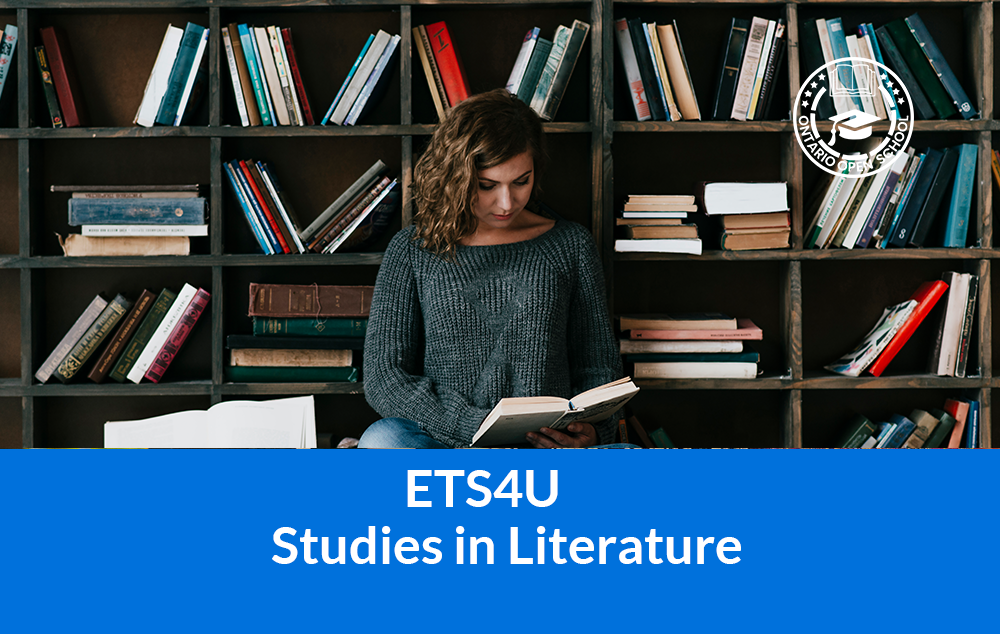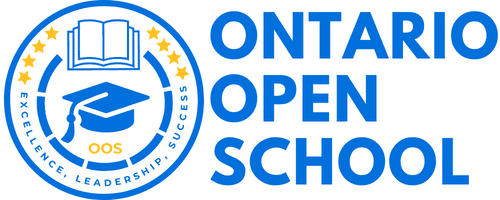- info@ontarioopenschool.com
- 647-494-4499
-
Unit 100 - 29 Gervais Drive, North York, ON.
M3C 1Y9
Copyright 2024 Ontario Open School Inc. All Rights Reserved.
This course is for students with a special interest in literature and literary criticism. The course may focus on themes, genres, time periods, or countries. Students will analyse a range of forms and stylistic elements of literary texts and respond personally, critically, and creatively to them. They will also assess critical interpretations, write analytical essays, and complete an independent study project.
Unit Order | Unit Name | Suggested Time |
|---|---|---|
| Unit 1 | Introduction to Literary Theory and Analysis Short Stories Translated to English Students will begin with a historical survey of English literature with strong emphasis on the 18th century—a period of increased literacy among the middle classes. The British Romantics and Victorians will be of paramount focus in this section. The unit will then examine Canadian literature and the attributes that both define and problematize it, leading into a discussion of multiculturalism, globalization and translated texts from the cannon of world literature. In this unit, students will simultaneously examine literary theory and analyze the components and mechanisms that uncover meaning within texts through different lenses. This will include focused study on Aestheticism, Deconstruction, Feminism, Marxism, Post-Colonialism, Post-Modernism, Queer Theory, Structuralism and Semiotics. The unit will conclude with a written cross-analysis of texts as well as a Unit Test. | 30 hours |
| Unit 2 | Archetypal Literary Theory Poetry from the English Cannon and Beyond Students will be introduced to Archetypal Literary Theory which examines recurring myths, symbols, and themes in literature. Students will be exposed to typically common tropes and investigate the relevance of these in everyday life. In addition, students will also participate in a workshop designed to introduce them to other types of poetry and the literary devices contained within them—generally beyond those covered in either ENG3U or ENG4U courses. The workshop will conclude with the focused written analysis of a single poet’s work (of the student’s choosing). This analysis will examine poetry types, poetic devices and archetypal analysis. The unit will conclude with a unit test to ensure that the key learnings of the unit have been consolidated.
| 20 hours |
| Unit 3 | Archetypal Literary Theory Poetry from the English Cannon and Beyond Students will be introduced to Archetypal Literary Theory which examines recurring myths, symbols, and themes in literature. Students will be exposed to typically common tropes and investigate the relevance of these in everyday life. In addition, students will also participate in a workshops designed to introduce them to other types of poetry and the literary devices contained within them—generally beyond those covered in either ENG3U or ENG4U courses. The workshop will conclude with the focused written analysis of a single poet’s work (of the student’s choosing). This analysis will examine poetry types, poetic devices and archetypal analysis. The unit will conclude with a unit test to ensure that the key learnings of the unit have been consolidated.
| 32 hours |
| Unit 4 | Postmodernist Approach to Literature The Graphic Novel Students will engage themselves in the rising popularity of the graphic novel. The unit will examine the conventions of the form and analyze its rising success as a literary medium as well as its perceived limitations. Students will be required to employ the different hats and lenses learned throughout the course and mine the text and corresponding film for alternate interpretations as well as penetrating the mediums for deeper understanding. The unit will conclude with an electronic media presentation of the book and film through a chosen literary theory, followed by a unit test before the final culminating assignment and exam.
| 20 hours |
| Final Evaluation 30% | Final Assignment Final Exam
| 6 hours 2 hours |
| Total | 110 Hours |
A wide variety of instructional strategies are used to provide learning opportunities to accommodate a variety of learning styles, interests and ability levels. These strategies include, but are not limited to:
|
Strategies marked with “x” are used in the course. |
|||
| Direct Instruction (teacher-led) | x | Class Activity (teacher facilitation) |
x |
|
Direct Instruction (discussion possible) |
x | Experiential learning (Learn by doing) | x |
| Class Discussion (teacher facilitated) | x | Worksheets/Surveys |
x |
|
Small Group Discussion |
x | Individual or Group Research | |
| Partner Discussion/Conferencing | x | Teacher modeling |
x |
|
1:1 Conferencing Teacher & Student |
x | Text-based modeling | |
| Teacher reading to class | x | Use of Computers / Internet Silent individual reading |
x |
|
Silent individual reading |
x | Use of video tape or audio materials | |
|
Group based reading |
x |
Role Playing |
|
| Independent Work (teacher facilitation) | x | Presentations |
x |
|
Group Work (teacher facilitation) |
x | Guest Speaker/Interview/Questions | |
| Brainstorming | x | Field Trip |
|
Purpose
The primary purpose of assessment is to improve student learning. Assessment relates directly to the expectations for the course.
A variety of assessments for and as learning are conducted on a regular basis to allow ample opportunities for students to improve and ultimately demonstrate their full range of learning and for the teacher to gather information to provide feedback. Assessment tasks relate to the success criteria set out in lesson plans. Success criteria allow students to see what quality looks like.
Evaluation is the process of judging the quality of student work in relation to the achievement chart categories and criteria and assigning a percentage grade to represent that quality. Evaluation is based on gathering evidence of student achievement through:
Assessment for Learning – we provide feedback and coaching. Assessment FOR Learning is the process of seeking and interpreting evidence for the use of learners and their teachers to decide where the learners are in their learning, where they need to go, and how best to go there.
Assessment as Learning – we help students monitor progress, set goals, reflect on their learning
Assessment AS Learning is the process of the explicit fostering of students’ capacity over time to be their own best assessors, but teachers need to start by presenting and modeling external, structured opportunities for students to assess themselves.
Assessment of Learning – we use assessments to provide evaluative statements about student achievement. Assessment OF Learning is the assessment that becomes public and results in statements of symbols
(marks/grades/levels of achievement) about how well students are learning. It often contributes to pivotal decisions that will affect students’ future.
ASSESSMENT TOOLS
|
Assessment tools marked with “x” are used in the course |
|||
|
Marking schemes |
x |
Rubrics |
x |
|
Anecdotal comments |
x |
Checklists |
x |
|
Rating Scales |
|
||
|
Assessment for Learning |
Assessment as Learning | Assessment of Learning | |||
| Quizzes | Reflective journal | x | Tests |
x |
|
|
Tests |
Exit and Entrance Cards | x | Presentations | x | |
| Presentations | KWL Chart | Journals |
|
||
|
Journals |
x | Self/Peer assessment | x | Essays | x |
| Essays | Logs | Models |
|
||
|
Models |
Projects | x | |||
| Projects | x | Demonstrations |
|
||
|
Demonstrations |
Conferencing | ||||
| Conferencing | x | Questioning |
|
||
|
Questioning |
x | Independent Study Assignment | x | ||
| Assignment | Art Exhibits |
|
|||
|
Art Exhibits |
Researching | ||||
| Researching | Reading Aloud |
|
|||
|
Reading Aloud |
x | Problem Solving (Process focused) | |||
| Problem Solving | x | Debates | |||
|
Debates |
Work Sheets | ||||
|
Work sheets |
x | Role Playing | |||
|
Role playing |
Direct Instruction | ||||
|
Direct Instructions |
x | ||||
Resources
Grading
Weighting of categories
| Knowledge/Understanding | Thinking/Inquiry | Communication | Application |
| 25 % | 25 % | 25 % | 25 % |

Course Grade | Grade 12 |
|---|---|
Course Code | ETS4U |
Course Category | English |
Course Type | University Preparation |
Course Delivery | Online |
Course Duration | 8hrs |
Course Credit | 0 |
Copyright 2024 Ontario Open School Inc. All Rights Reserved.
